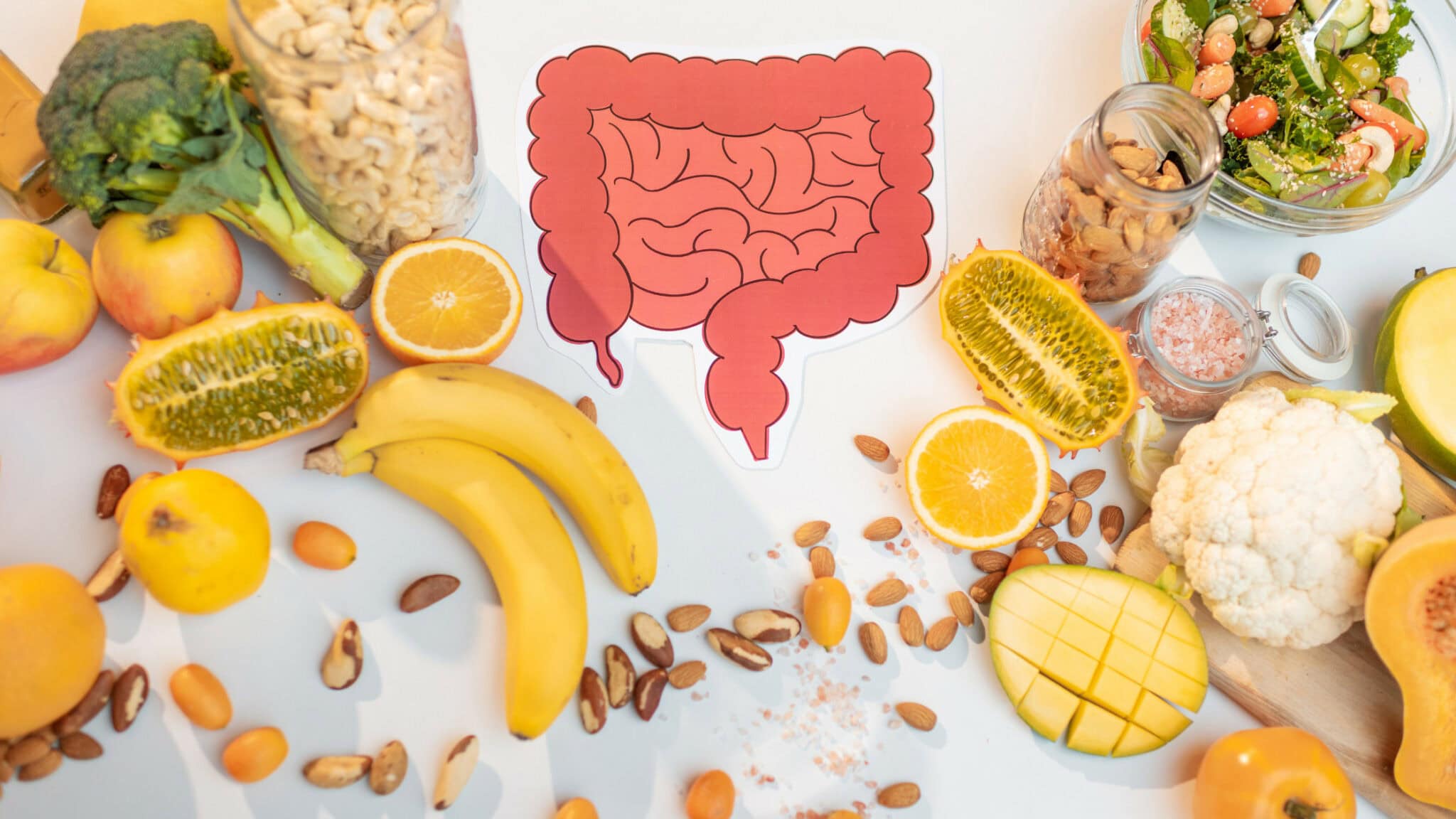Diabetes and Stress: How Mental Health, Food, and Cortisol Impact Blood Sugar
Stress affects more than your mood—it can impact blood sugar, nutrition, and mental health. Learn how to recognize the signs and support your body.
Most people know that stress is something to reduce or avoid, but it may be surprising to learn how much it can affect our overall health and well-being. This is especially true for people who are living with metabolic diseases like diabetes.
Stress significantly affects our body's ability to stabilize blood sugar levels and reach a manageable state. What's even more concerning is that nearly 40% of people with diabetes are unaware they have it. When imbalanced and uncontrolled, diabetes can lead to serious issues like cardiovascular disease (stroke and heart disease), kidney problems and nerve damage.
This article will look at the connections between stress, nutrition, diabetes, and mental health. Understanding these links can help you identify some early warning signs and decide if you should get tested for diabetes. From there, we’ll share some tips on how stress might be affecting your glucose levels and what you can do to manage stress for better health overall.
How does stress affect blood sugar levels?
When stressed, our bodies release cortisol and adrenaline, which signal our pancreas to release stored glucose into our bloodstream. It's a natural response: these hormones raise blood sugar to react to a fight-or-flight situation. This happens in a fraction of a second, starting a complex chain of events.
In those moments of stress, our bodies instinctively give us a burst of energy to face the threat. At the same time, we need to be able to lower blood sugar levels when we aren't under threat to ensure that all our cells have the necessary energy to function correctly. That’s where insulin comes in. It is the chemical signal responsible for regulating glucose and determining how we store nutrients in our liver and muscles. It also plays an important role in how our bodies store fat molecules.
If stress becomes chronic, it can trigger an ongoing state of inflammation, leading to a condition called insulin resistance. Chronic stress doesn't allow for the natural conditions necessary for insulin to clear away elevated levels of stress hormones within our bodies. Over time, our cells become less responsive to insulin’s signals, and the way we absorb and clear glucose in our bloodstream becomes impaired. Since insulin is key to regulating energy, this process can affect our health in ways we might not even notice.
How is nutrition related?
Our bodies operate on a delicate balance of carbohydrates, proteins, and fats to stay healthy. When there are imbalances from having either too much or too little of these nutrients, it can impact our health because our body's priority is to protect the brain. Nutrition also plays a key role in managing stress levels and regulating blood sugar. Sometimes, we may turn to emotional eating or binge eating as ways to cope with high stress.
It might be surprising to learn how much our gastrointestinal system affects our emotional health. Research shows that a large part of our emotions is probably influenced by the nerves in our gut. In fact, the microorganisms in our digestive system produce neurotransmitters like serotonin, which is closely related to mood and emotional well-being. Imbalances can contribute to depression and anxiety. So, when we talk about “gut feelings”, it’s not just a figure of speech — 95% of the body’s serotonin is found in our bowels. This helps explain why our relationship with food is so complex.
To help you build awareness about the connection between food and how our bodies function under stress, here are some strategies to consider:
Think about whether you have any rules—either consciously or unconsciously—about when and what you can eat. If you do, reflect on when these started and why.
Relearn your “natural hunger cues” to tune into what your body needs and when it’s full.
Slow down and savor your food. Notice the flavors, textures, and how you feel as you eat. Ask yourself:
Are you enjoying the food?
Are you responding to a craving?
Is eating solving the problem you may have started with?
Is your hunger going away as you eat?
Do you feel happy, guilty, or upset while eating?
When we recognize these thought patterns, we can better understand how we behave around food and become more mindful that this act of nourishing ourselves is only one part of the many processes happening in our bodies.
Symptoms of stress and diabetes
Since so many are living with undiagnosed diabetes and might not realize how closely it’s linked chronic stress, we thought it might be helpful to share some signs to watch out for. Please keep in mind that this information is never intended to replace a diagnosis or treatment plan from a healthcare professional.
Here are some similarities and differences between Type 1 and Type 2 diabetes:
Note: This article focuses on Type 1 and Type 2 diabetes and doesn’t cover other forms of diabetes, such as gestational diabetes or pre-diabetes.
We often overlook or dismiss symptoms because our lives are hectic, and stress has become so common. Here are some signs of stress and what we tend to attribute them to.
Regularly checking with your healthcare team helps you identify patterns and understand how stress is affecting you. With this information, you’ll be able to make informed plans for addressing supportive changes.
Ways to reduce stress
Reducing stress is possible with some simple but effective strategies. By making small changes to your lifestyle, you can make a big impact on your long-term health and well-being.
1. Get up and move around every day.
Aim for at least 150 minutes each week doing activities that increase your heart rate and get your muscles moving. You don’t have to run or push yourself too hard. Everyday tasks around the house get you moving, too. Even ten minutes of walking helps. Movement also helps improve mental health. Before long, you may notice that your body craves it!
2. Eat a variety of nutritious foods.
Choose foods that give your body the vitamins and minerals it needs, especially those that stress can deplete. It’s preferred to get these nutrients from food rather than supplements, but if you’re considering taking any, talk with your doctor or pharmacist first. Taking supplements without guidance could inadvertently cause more internal stress and inflammation in your body, leading to situations where your body may become more vulnerable to other diseases.
3. Reduce your social media use and spend more time connecting with those around you.
You’ll be able to practice the art of friendship, learn from other people’s perspectives, and discover what it’s like to be an active part of a community. You could participate in shared activities, interests, or experiences.
4. Explore the mechanism of your breath.
It’s easy to start by first discovering how many times you breathe in one minute and then seeing if you can reduce that by breathing fuller, deeper, and with more awareness. How do you feel when you slow your breathing down? You might prefer to use guided meditations to help your breathing and visualize what calmness is for you.
5. Seek professional help.
Counselling can help you uncover the root causes of chronic stress and provide tools to manage it more effectively. Learning about yourself and your reactions can make you better informed and anticipate and plan a better response when you encounter a stressful situation.
Discovering more about how stress and blood sugar are interconnected is a way to manage and promote good health practices and gain knowledge to live a better life.
References
Cleveland Clinic. (last reviewed 2025). “Cortisol.” Cleveland Clinic Articles. Accessed 21 March 2025.
Davidson, K., medically reviewed by Seitz, A. MS, RD. (2020). “How Can I Improve My Relationship with Food?” Healthline – NUTRITION. Accessed 21 March 2025.
Mayar, E. (2010). “Think Twice: How the Gut’s ‘Second Brain’ Influences Mood and Well-Being.” Scientific American. Accessed 21 March 2025.
Pan American Health Organization - World Health Organization. (2022). “The number of people with diabetes in the Americas has more than tripled in three decades, PAHO report says.” PAHO. Accessed 21 March 2025.
.png)
.png)
.png)
.png)
.png)
.png)











